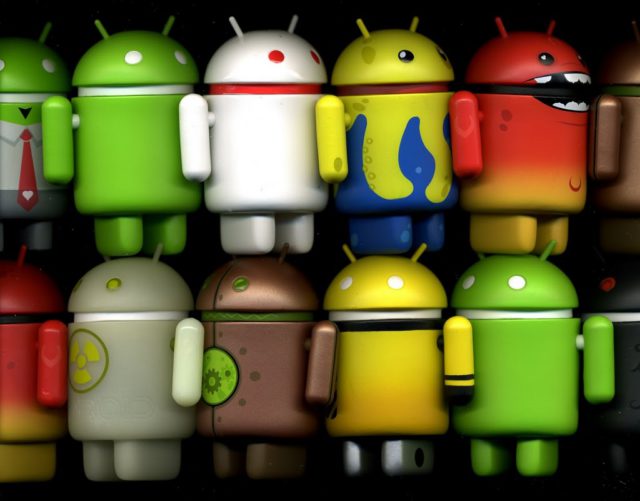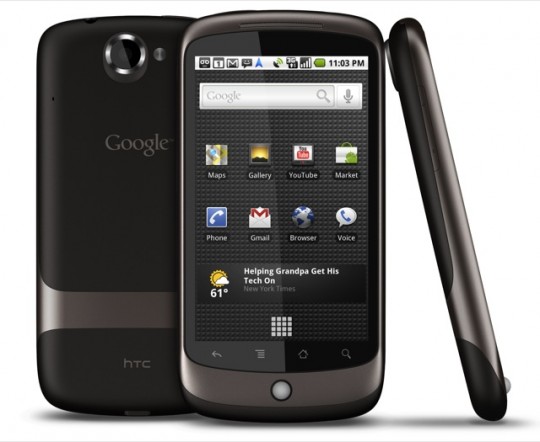Fresh opinion: it's time to abandon the definition of 'stock Android'.

In early June, at the Code Conference, Sundar Pichai made a series of statements that literally thrilled the internet. Pichai said Google will add more software 'tweaks' to future Nexus: “We hope you see more new features on top of Android in the Nexus .. More software innovation is needed.”
Some took this as a sign of abandonment of the stock Android in Nexus and Google's move towards differentiating their devices, as other manufacturers do, with their own functional features and software, which, in turn, will indicate a departure from a cleaner interpretation Android. All this seems to be logical, but only until you really think about it, because Nexus devices have not been working on a stock OS for many years. It's time for us to figure out what the term means, not to mention the idea that Google's interpretation Android is somehow 'cleaner'.
Let's start by denoting closed source applications:
- Dialer
- E-mail (Gmail)
- Google Now Launcher
- Google Camera
- Messenger and Hangouts
- Gallery (Google Photos)
- Browser (Google Chrome is closed source, although Chromium does not)
- Clock
- Cards
- Search and voice control
These applications are responsible for key functions and services of smartphones and Google keeps them under full control. Without these apps and services, none of the Nexus devices can be imagined. All of these products are owned and developed by Google, but with one key caveat: many of them are available to various partners of the company in part Android, which thereby imposes an interpretation of a 'clean', 'stock' system.
The term 'stock' in relation to Android originally referred to a user experience that was fairly close to the Android Open Source Project (AOSP). And before, even from the perspective of a direct user Android from AOSP was very similar to Android on a device from Nexus, for example, Nexus One or Nexus S, except for the set of Google programs, which included some programs from the above list. At that time, these programs were limited to already existing services and products that were introduced in Android and happily existed before it. The dialer, launcher, email client, SMS client, gallery, clock and even the browser were at a certain stage of development part of the AOSP and their code was completely open. Most of them are still open-source applications, but they are no longer updated, in large part because Google is now using closed-source alternatives to them.

As such, there is no longer such a thing as a 'stock' user experience for Android on the market, and you won't see it again unless you decide to install one of the custom builds. Now there is a concept Android from Google. And that is what we should call him henceforth. By claiming that the Nexus devices are running on a 'stock' or 'clean' version Android, we are kind of rewriting history in accordance with Google's view and positioning (Android completely open, the Nexus line runs on an open OS), but this position is incorrect in the context of the current state of the OS. Of course, in a technical sense, Google defines 'stock' Android with changes made to the AOSP and will continue to do so, but a significant part of the user experience is driven by applications and services that have nothing to do with 'openness' Android or AOSP. They are Google products and services, and have exactly the same 'defining' impact on Android as Samsung S Voice and HTC Sense, being just add-ons.
The idea that bringing line-specific features and services to the Nexus would create a 'less clean' user experience for Android is absolutely silly. As far as the user is concerned, Nexus devices do not use stock Android (and they never did), they do not bring a 'pure' user experience, this is just a myth, everything is simple and clear. What makes Nexus phones special is Android from Google. And the addition of software features unique to Android from Google will not change the direction of movement, but will only mark the next step on the path chosen by Google many years ago for the Nexus. For example, I still like this, I find the interpretation Android from Google to be the nicest to use. And I see no reason to justify it with the term 'clean', which brings to mind more religious fanaticism than consumer electronics.
Original material by David Ruddock
Android – purists may remain dissatisfied, because the already familiar concept actually does not correspond to the true state of affairs for a long time, especially when you think about how much was gleaned from 'clean' Android from add-ons from third parties. Nevertheless, Google's vision so far justifies itself, there is interest in the line, albeit mainly among enthusiasts. It will be interesting to see what they add to their version of the OS.
Such reasoning is doubly amusing to read after rumors about possible three Nexus devices this year, as well as the possibility of buying the company HTC by another manufacturer – Huawei. Both companies have already released Nexus devices, I would love to see a product of the combined efforts of two major players. Returning to the topic of the material, do you think the author is right or does the version from Google still have the right to be called 'clean'?
